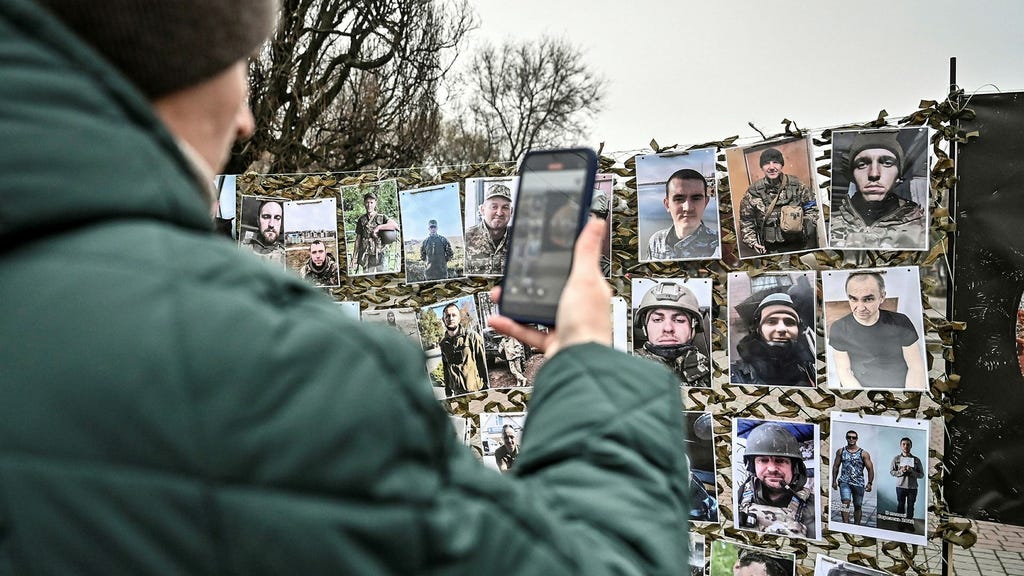The Ukrainian Security Service (SBU) has revealed a disturbing pattern of coercion employed by Russian intelligence agencies against Ukrainian citizens. These agencies are targeting individuals with captured family members, leveraging their desperation and vulnerability to compel them into committing acts of terrorism within Ukraine on behalf of Russia. The SBU has documented numerous cases where Ukrainians are being given a chilling ultimatum: carry out acts of sabotage and violence, or never see their loved ones again. This tactic preys on the deepest human fears and transforms ordinary citizens, often against their will, into instruments of the Russian war effort. The SBU’s findings paint a grim picture of the psychological warfare being waged alongside the kinetic conflict, and highlight the brutal lengths to which Russian operatives are willing to go to destabilize Ukraine and undermine its resistance.
These coerced individuals are tasked with a variety of malicious activities, including planting explosives in public places, sabotaging critical infrastructure like power grids and communication networks, and carrying out targeted assassinations of key Ukrainian figures. The SBU has intercepted communications and gathered testimonies that reveal the intricate web of manipulation and intimidation employed by Russian handlers. They exploit the emotional distress and powerlessness of the families involved, using threats and psychological pressure to ensure compliance. The victims of this coercion are often trapped between their loyalty to Ukraine and the desperate desire to protect their loved ones, forced into a moral dilemma with potentially devastating consequences. This strategy not only undermines Ukraine’s security but also deeply traumatizes individuals and families, leaving lasting scars on the Ukrainian population.
The SBU is working diligently to identify and intercept these operations, providing support and protection to those targeted by Russian intelligence. They are also working to raise public awareness about this insidious tactic, urging citizens to be vigilant and to report any suspicious contact or activity. The challenge lies in the clandestine nature of these operations, often conducted through encrypted channels and utilizing sophisticated disinformation campaigns. The SBU emphasizes the importance of international cooperation in combating this form of hybrid warfare, calling on partner nations to share intelligence and implement measures to counter Russian disinformation and influence operations. The exposure of these coercive tactics is crucial in holding Russia accountable for its actions and rallying international support for Ukraine.
The use of coercion against Ukrainian civilians underscores the asymmetrical nature of the conflict and the disregard for international humanitarian law displayed by Russian forces. Targeting civilians and their families for political gain is a clear violation of the Geneva Conventions and constitutes a war crime. This tactic is not only morally reprehensible but also strategically counterproductive, further alienating the Ukrainian population and strengthening their resolve to resist Russian aggression. The international community must condemn these actions in the strongest possible terms and hold Russia accountable for its blatant disregard for human rights and international law. Documenting and exposing these crimes is essential for future prosecutions and for ensuring that those responsible are brought to justice.
The impact of this coercive strategy extends far beyond the immediate victims. It instills fear and mistrust within communities, creating a climate of paranoia and hindering social cohesion. The psychological toll on the individuals forced to participate in these acts is immense, often leading to long-term trauma and psychological distress. Moreover, the successful execution of these acts of sabotage can have devastating consequences for Ukrainian society, disrupting essential services, damaging infrastructure, and causing civilian casualties. These acts of terrorism not only destabilize the country but also contribute to a wider atmosphere of fear and insecurity, further exacerbating the humanitarian crisis. Addressing the long-term psychological needs of the victims and providing support for their families is crucial for the healing process and for rebuilding trust within Ukrainian society.
The SBU’s findings highlight the complex and multifaceted nature of the ongoing conflict in Ukraine, revealing the insidious tactics employed by Russia to undermine Ukrainian sovereignty and sow discord. The use of coercion against civilians represents a dangerous escalation of the conflict and underscores the urgent need for a comprehensive international response. This response must include increased humanitarian aid, stronger sanctions against Russia, and continued support for Ukraine’s defense capabilities. Furthermore, international efforts must focus on combating disinformation and exposing Russian war crimes, ensuring that those responsible are held accountable. The international community must stand in solidarity with Ukraine and work collectively to end the conflict and bring about a just and lasting peace. This includes supporting Ukraine’s efforts to rebuild its infrastructure, strengthen its democratic institutions, and provide psychological and social support to the victims of Russian aggression. The ultimate goal must be to create a secure and stable future for Ukraine, free from the threat of coercion and violence.














